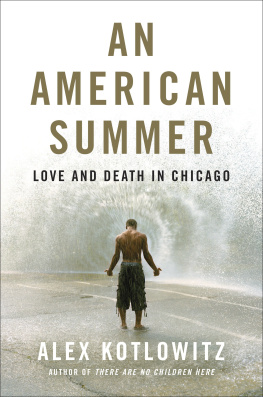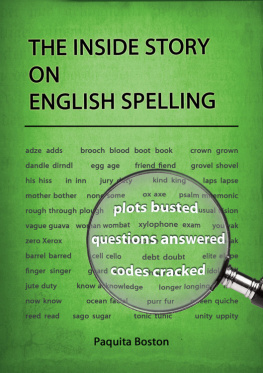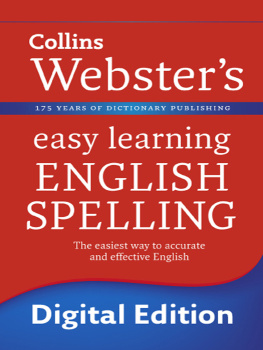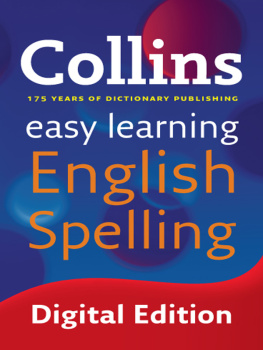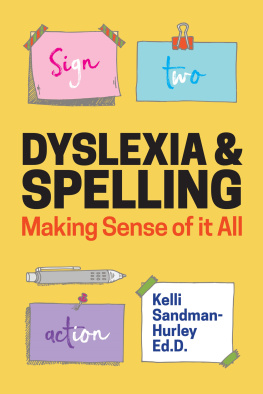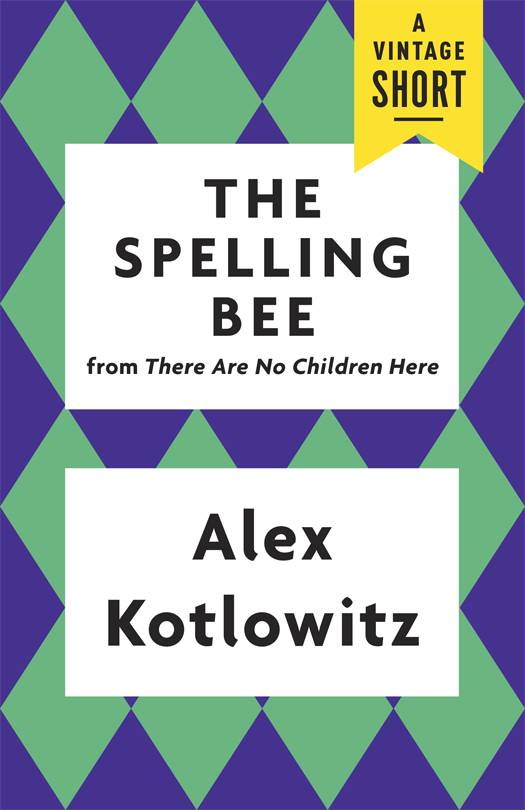The Spelling Bee
from There Are No Children Here
Alex Kotlowitz
A Vintage Short
Vintage Books
A Division of Random House LLC
New York
Copyright 1991 by Alex Kotlowitz
All rights reserved. Published in the United States by Vintage Books, a division of Random House LLC, New York, a Penguin Random House company. Originally published as part of There Are No Children Here in the United States by Anchor Books, a division of Random House LLC, New York, and in Canada by Random House of Canada Limited, Toronto. There Are No Children Here was originally published in hardcover by Nan A. Talese / Doubleday, a division of Random House LLC, New York, in 1991.
Vintage and colophon are registered trademarks of Random House LLC.
All dates, place names, titles, and events in this account are factual. However, the names of certain individuals have been changed in order to afford them a measure of privacy.
The Cataloging-in-Publication Data for There Are No Children Here is available from the Library of Congress.
Vintage eShort ISBN: 978-1-1019-1033-7
www.vintagebooks.com
v3.1_r1
Contents
Pharoah loved school. Unlike the streets, where his stammer and small size made him the object of ridicule, he stood tall in school. He read at the level of third grade and six months, as measured by the Iowa Tests of Basic Skills, two months below where he should have been. Nonetheless, that placed him near the top of his upcoming fourth-grade class, whose average was 2.6, a year and two months below grade level.
When school was in session, Pharoah was the first to leave home each morning. While his older brother Lafeyette was still dressing, Pharoah would race out the door, urging his brother to hurry up, warning him that he might miss the nine oclock bell. The school sat a block away. During all of third grade, Pharoah had been late only four times. Lafeyettes tardiness record the preceding year was eighteen.
At night, Pharoah frequently read until his eyes hurt. Because he had no lamp or working overhead light in his bedroom, he would lie on his belly on the brown floor with his head poking out the door to take advantage of the hallway light. The naked, sixty-watt light bulb did little to brighten the narrow hallway, so Pharoahs eyes quickly grew weary. He was sure he needed glasses. In fact, he desperately wanted a pair. They might help him read longer, he felt, and certainly would make him stand out in school. Maybe, he suggested, if he wore glasses, his teachers would choose him more often to run errands or to answer questions. They would, at the very least, he insisted, make him look smarter. Though a later eye examination showed him to have perfect vision, he continued to ask for a pair, even if their lenses were just clear glass.
When he got bored or had nothing better to do, he practiced his penmanship. His teachers noted that he had an unusually neat and delicate handwriting for someone so young. But Pharoah worked at it, usually writing his name over and over on a piece of paper, so that by the time he had finished, his name appeared maybe two dozen times, leaping in all directions. His mother, Lajoe, had given him his name but, like his brothers name, spelled it in an unusual way. When Pharoah practiced, the Ps would stand out in their grace and dominance over the other letters; he would even loop the letters stem to give it a more pronounced presence. Sometimes, if he got carried away, his name would angle upward, with curls adorning the other letters, too, as if his name were a fanciful spaceship about to rocket off the edge of the paper.
This summer he had had a lot of time to practice his handwriting. Chicagos teachers were into the second week of their fourth strike in five years. For Pharoah, the strike-extended vacation had dragged on far too long. During the long summer, another friend of the familys, a man in his early twenties, had been shot and killed. The circumstances were never clear. Both boys refused to attend the burial; they still hadnt gotten over Bird Legs death.
Concerned about the safety of her children, Lajoe sent Lafeyette and Pharoah to stay with her mother until school opened. Lelia Mae Anderson lived with a granddaughter on the first floor of a two-family home about two miles farther west. Though it is one of the poorest areas of the city, the gang violence and drug dealing were not as prevalent as at Horner. When school finally did openon October 4, four weeks after it had been scheduled to (the teachers won a 4 percent pay boost for each of two years after a record-long walkout)Pharoah approached it with fervor. It was to be an important school year for him.
The Henry Suder Elementary School, named after a turn-of the-century physical education director, is an unimposing, two-story, red brick building whose architecture is more utilitarian than esthetic. The building is horseshoe-shaped; the three sides surround a concrete courtyard where the children can play football and tag and other games under the facultys watchful eye. The courtyard butts up against the Henry Horner Homes public housing complex, separated only by a waist-high fence.
Suder was one of three area elementary schools built between 1952 and 1963, the period of largest influx of families into Henry Horner. Some five thousand children moved in. In the areas heyday, years before Horner was built, the neighborhood schools educated such future luminaries as Lillian Russell, Edgar Rice Burroughs, and Florenz Ziegfeld. But that was when the public schools were strong and respected institutions.
While there has been a lot of focus in recent years on the sad state of the nations inner-city schools, residents in communities like Horner have always found the schools inadequate. In the early and mid-1960s, the schools, in fact, were a rallying point for blacks in Chicago, who charged that education was both separate and unequal for their children. In 1964, 90 percent of black children of elementary school age attended schools that were 90 percent black. A Chicago Urban League study found that in the predominantly minority schools, the budget for teacher salaries was only 85 percent of that for predominantly white schools, and operating expenses per pupil were only 66 percent as high. Moreover, the school board discouraged parental involvement. It didnt list the telephone numbers of individual schools in the citys phone book, so parents couldnt reach their childrens school by phone.


